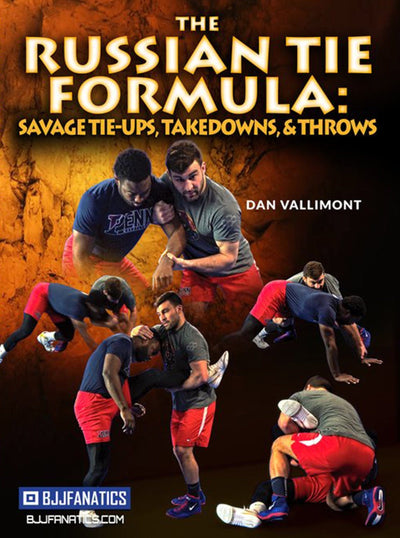Wrestling Concussions
Concussions are a significant concern in the world of sports, and wrestling is no exception. Wrestling, a physically demanding and intense sport, can potentially lead to concussions, making it crucial for wrestlers, coaches, and officials to be well-informed about the risks, symptoms, and preventive measures associated with wrestling-related concussions. In this article, we will explore what a wrestling concussion is, how common they are, whether you can get a concussion from wrestling, what to do if you suspect a concussion, and strategies to minimize the risk of concussions in wrestling.
What this article covers:
- What Is a Wrestling Concussion?
- How Common Are Concussions in Wrestling?
- Can You Get a Concussion from Wrestling?
- What Should You Do If You Think You Have a Concussion from Wrestling?
- How to Avoid Concussions in Wrestling
Wrestling concussions cast a shadow over the sport's physical demands, highlighting the importance of safety measures and concussion awareness. In the realm of butt drag wrestling, the risk of concussions underscores the need for precise execution and controlled maneuvers when performing takedowns, emphasizing safety for both the attacker and the recipient. Wrestling high flyers, known for their aerial acrobatics, must balance the excitement of their moves with ensuring safe landings to avoid head injuries. In crotch wrestling, a focus on technique and controlled takedowns can help minimize the risk of concussions during high-impact clashes. Shadow wrestling allows wrestlers to refine their skills and promotes safer techniques by reinforcing proper form and control. In the context of heel turn wrestling, concussions underscore the importance of responsible storytelling and choreography to prevent accidental injuries during high-stakes matches, reminding wrestlers and promoters of the need for safety in all aspects of the sport.
Learn from the best wrestlers at FanaticWrestling.com!
What Is a Wrestling Concussion?
A wrestling concussion is a traumatic brain injury that occurs when a wrestler sustains a blow to the head or body, resulting in a sudden jolt to the brain. This jolt can disrupt normal brain function, leading to a range of symptoms, such as confusion, dizziness, memory problems, and headaches. Concussions are a serious concern because they can have both short-term and long-term effects on a wrestler's health and well-being.
How Common Are Concussions in Wrestling?
Concussions are not uncommon in wrestling, given the physical nature of the sport. The prevalence of concussions can vary depending on factors such as skill level, style of wrestling, and adherence to safety protocols. While wrestling has implemented safety measures to reduce the risk of concussions, including rules governing head and neck protection, concussions can still occur during intense matches and practice sessions.
Can You Get a Concussion from Wrestling?
Yes, it is possible to get a concussion from wrestling. Wrestlers are at risk of sustaining concussions through various mechanisms, including direct blows to the head, body slams, takedowns, or even falls on the mat. Additionally, the high-intensity nature of wrestling can increase the likelihood of accidental collisions and impacts that may lead to concussions.
What Should You Do If You Think You Have a Concussion from Wrestling?
If a wrestler suspects they have sustained a concussion during a match or practice, it is crucial to take immediate action:
-
Stop Wrestling: Cease all wrestling activity to prevent further injury.
-
Seek Medical Evaluation: Consult a healthcare professional experienced in evaluating concussions. They can assess the severity of the injury and provide guidance on the appropriate course of action.
-
Rest and Recovery: Follow the prescribed treatment plan, which often includes rest, both physical and cognitive, to allow the brain to heal.
-
Return-to-Play Protocol: Adhere to a gradual return-to-play protocol, ensuring that the wrestler is symptom-free and medically cleared before resuming wrestling activities.
How to Avoid Concussions in Wrestling
Preventing concussions in wrestling requires a multi-faceted approach:
-
Proper Technique: Emphasize the importance of proper wrestling technique, including takedown and fall break techniques to reduce the risk of high-impact collisions.
-
Protective Gear: Ensure wrestlers use appropriate headgear and mouthguards to minimize the risk of head injuries.
-
Education: Educate wrestlers, coaches, and officials about the signs and symptoms of concussions, promoting a culture of safety and early recognition.
-
Rule Adherence: Strictly enforce wrestling rules related to head and neck protection to prevent dangerous maneuvers.
-
Supervision: Ensure that wrestling practices and matches are adequately supervised by qualified coaches and officials who can intervene if unsafe situations arise.
The Best Wrestling Resources At Your Fingertips at FanaticWrestling.com!
Wrestling concussions are a concerning aspect of the sport, but with proper education, prevention strategies, and timely recognition, the risks associated with concussions can be mitigated. Wrestlers, coaches, and officials play a vital role in promoting safety and protecting the well-being of athletes, allowing them to continue enjoying the benefits of the sport while minimizing the potential for concussions and their associated health consequences.
Did you find the blog helpful? If so, consider checking out other guides:
- Work Wrestling Term
- Wrestling Finishers
- Best Wrestling Heel Turns
- Work Wrestling Term
- Wrestling Finishers
- Best Wrestling Heel Turns
- Big Versus Small Wrestling
- Differences Between Jiu Jitsu and Wrestling
- Muay Thai Versus Wrestling
- Martial Arts vs Wrestling
- Wrestling Weight Classes
- Best Wrestling Exercises
- Wrestling Bridge
- Neck Exercises for Wrestling
- Wrestling Grip











